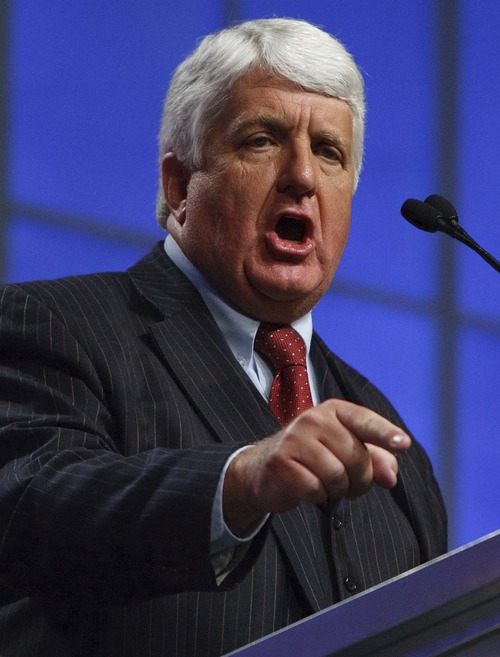This is an archived article that was published on sltrib.com in 2014, and information in the article may be outdated. It is provided only for personal research purposes and may not be reprinted.
"Leave it as it is. You cannot improve upon it; not a bit. What you can do is to keep it for your children, your children's children, and for all who come after you." — President Theodore Roosevelt, designating the Grand Canyon National Monument, 1908
Utah's Rep. Rob Bishop has it absolutely backwards. The time for a public review of the future of a piece of public land is before it is forever destroyed, not before it is set aside.
His bill, H.R. 1459, which the House debated and, predictably, passed Wednesday, wants to make it nearly as difficult to create a national monument as it is to permit a coal mine. That is no way to care for our commons. The bill, thankfully, is unlikely to get through the Senate.
Turning a piece of federally owned land — land held in trust for all the people of the United States, present and future — into a national monument is an innately forward-thinking act. But it is one that could, should sentiments and circumstances change, be reversed.
It's at least possible that a majority of the American people, speaking through their elected representatives in Congress, could decide that the temporary benefit of burning another 100 million tons of coal or another 100 million barrels of oil outweighs the benefit of preserving beautiful, unique or environmentally fragile lands. If that happens, they can move to sell the parks, cancel presidential declarations of national monuments and rub their hands together over all the lovely money that their friends will make.
The reverse, however, is not true. Opening land to mining and drilling is not easily undone. And that is why the burden of proof should continue to weigh on the exploiters, not the defenders, of public land.
Bishop and his Utah congressional colleagues have, of course, dined out for years on the story of how mean old Bill Clinton swooped in to Utah — actually, to Arizona — one day in 1996 and cavalierly made up Utah's 1.8 million-acre Grand Staircase-Escalante National Monument under powers granted him by the 1906 Antiquities Act, without so much as a by-your-leave with any state or local official. That was good politics for Clinton, who proceeded to carry Arizona that year, but understandably left many Utahns with a bad taste for the whole national monument business.
But the purpose of the Antiquities Act, as TR understood, was to protect historically or environmentally significant lands, free of any need to out-lobby the fossil fuels industry. It should be left as it is.



